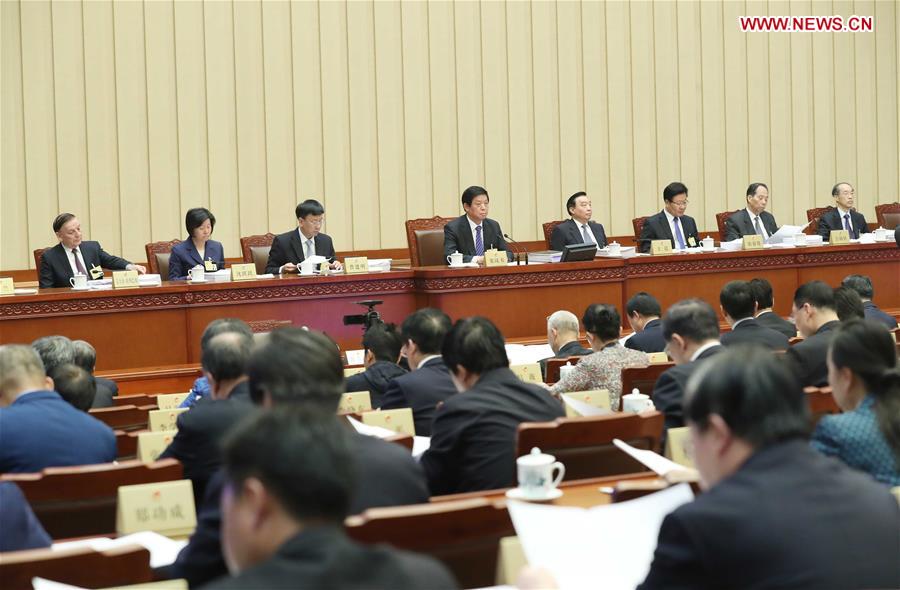
Li Zhanshu, chairman of the National People's Congress (NPC) Standing Committee, presides over a bimonthly session of the 13th NPC Standing Committee at the Great Hall of the People in Beijing, capital of China, Oct. 22, 2018. (Xinhua/Liu Weibing)
BEIJING, Oct. 22 (Xinhua) -- China's top legislature on Monday started its bimonthly session to deliberate a draft amendment to the Criminal Procedure Law and a draft amendment to the Drug Administration Law, part of a five-day agenda.
Li Zhanshu, chairman of the National People's Congress (NPC) Standing Committee, presided over the meeting.
The draft amendment to the Criminal Procedure Law, submitted for a third reading, includes "default judgment" provisions, which will let a criminal trial continue even if the defendant has fled China. One provision makes it applicable to corruption-related criminal cases, and also serious cases endangering state security and terrorist activities that have been examined and approved by the Supreme People's Procuratorate and need to be tried in a timely fashion.
To better protect the legitimate interests of the defendant, the draft imposes new stringent rules, requiring the courts to examine whether a case is applicable to a "default judgment."
The amendment to the Drug Administration Law aims to address counterfeit drug problems with tougher punishment and all-round supervision. A draft law on basic healthcare and health promotion was also submitted for a second reading.
The session will also consider draft revisions to the People's Courts Organic Law and the People's Procuratorates Organic Law.
Lawmakers will also review a package of draft revisions on 15 laws, including the Wild Animal Conservation Law and the Metrology Law, in a bid to conform to a key institutional reform plan adopted by the NPC on March 17.
For example, the customs and quarantine offices used to be parallel law enforcement agencies under the Wild Animal Conservation Law, but the latter are now a part of the customs administration.
Several reports, including two submitted by the State Council on state assets, will also be discussed, according to the agenda.
Lawmakers are also considering a change of the intellectual property right appeals procedure, which would hand the Supreme People's Court cases that require more expertise due to the complexity of such cases.
The meeting is expected to decide whether to adopt revisions to the Company Law, which set to relax restrictions on public companies making share repurchases.



